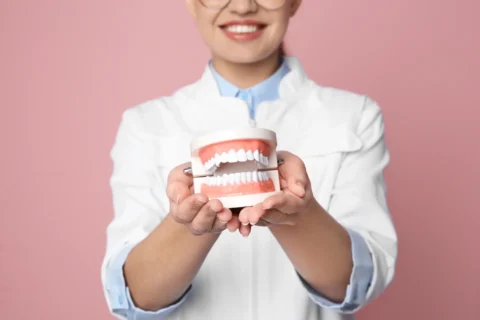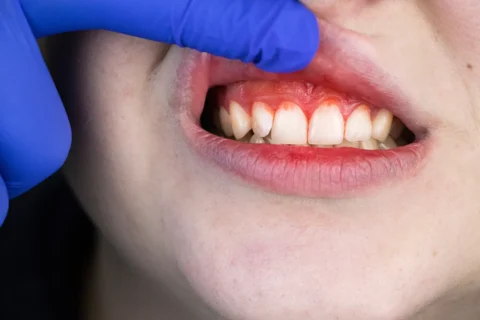Understanding Periodontitis
If your dentist has diagnosed you with periodontitis, you might have a few questions. Periodontitis is a form of gum disease, or periodontal disease, which affects the gum tissue. Here is a look at the causes, symptoms, and treatment options for periodontitis in Denver.
Common Causes of Periodontitis
Gingivitis, which is the first and most mild stage of gum disease, can develop as a result of poor oral hygiene, medication side effects, genetic predisposition, certain medical conditions, certain lifestyle choices, and infrequent visits to the dentist. The primary causes of gingivitis are a lack of natural saliva production and a buildup of bacteria in the mouth. Saliva contains ingredients that preserve the health of your teeth, gums, and mouth. It also washes harmful bacteria out of the mouth. Certain medications and medical conditions can reduce saliva production, as can smoking. As bacteria build up in the mouth, plaque and tartar develop. Without proper oral hygiene, this plaque and tartar buildup can cause gingivitis and, if left untreated, periodontitis.
Symptoms of Periodontitis
The initial symptoms of gingivitis include gums that are swollen, tender, inflamed, and red or purplish in color. Bleeding gums, especially noticeable when brushing your teeth, is the most common symptom. Without treatment by a dentist or periodontist, gingivitis can progress to periodontitis. The primary symptoms of periodontitis are gum recession, the development of new gaps between teeth, bad breath, a bad taste in the mouth, loose teeth, and a change in the way that your teeth fit together when you bite down. Without treatment, periodontitis can progress to advanced periodontitis, which can cause tooth loss.
Effective Treatment Options for Periodontitis
Your treatment options will depend upon how advanced your periodontitis is. Periodontitis treatment may be surgical or non-surgical. Non-surgical treatments include dental scaling, root planing, and antibiotics. Surgical treatments may include laser gum treatment, laser gum therapy, and pinhole surgery to repair gum recession. More intensive treatments may be needed at a later time if periodontitis is left untreated.



